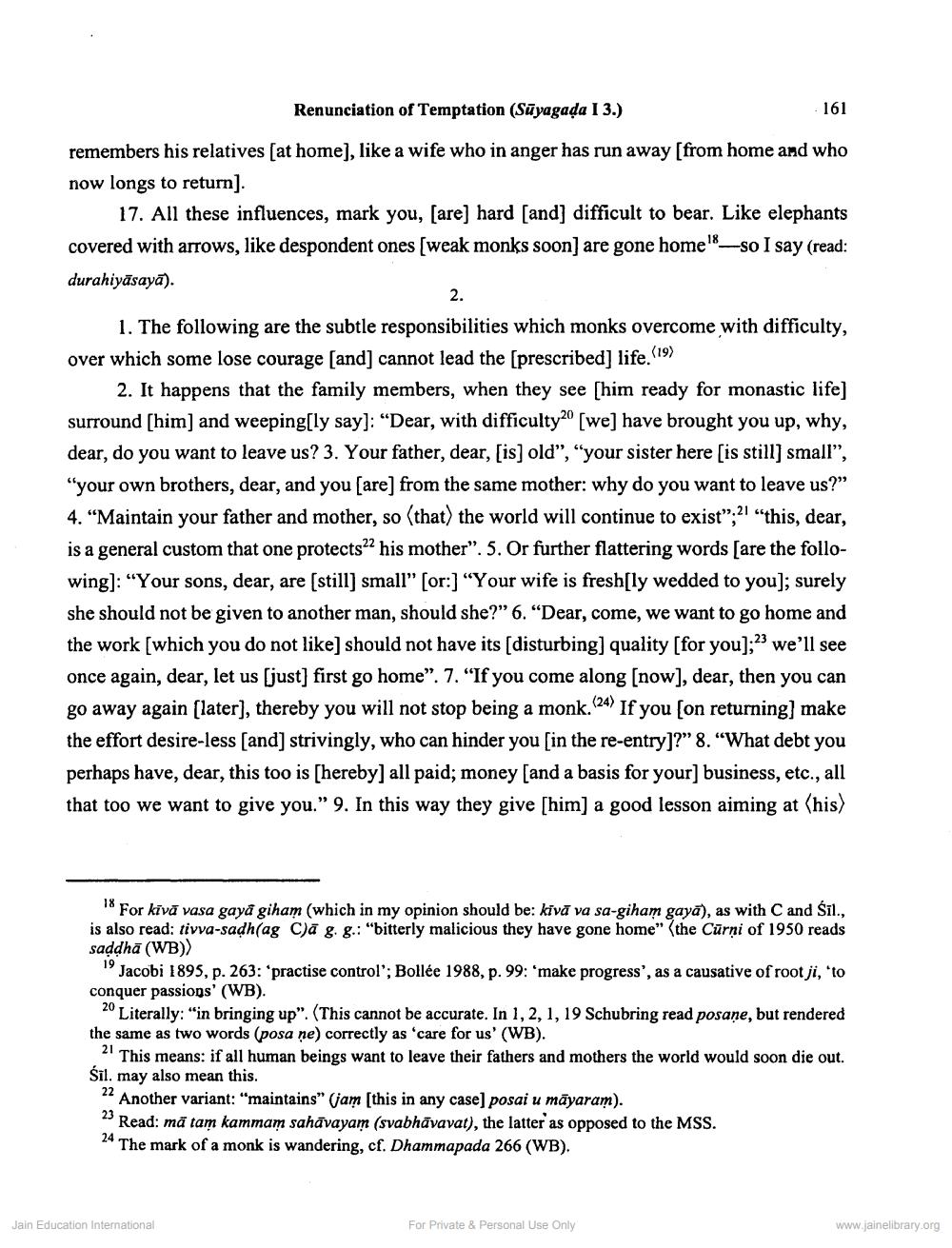________________
Renunciation of Temptation (Sūyagada I 3.)
161
remembers his relatives (at home), like a wife who in anger has run away (from home and who now longs to return).
17. All these influences, mark you, [are) hard [and] difficult to bear. Like elephants covered with arrows, like despondent ones (weak monks soon) are gone home's—so I say (read: durahiyāsayā).
1. The following are the subtle responsibilities which monks overcome with difficulty, over which some lose courage [and] cannot lead the (prescribed] life.19
2. It happens that the family members, when they see [him ready for monastic life] surround (him) and weeping[ly say]: “Dear, with difficulty20 [we) have brought you up, why, dear, do you want to leave us? 3. Your father, dear, [is] old", "your sister here is still] small”, "your own brothers, dear, and you (are) from the same mother: why do you want to leave us?” 4. "Maintain your father and mother, so (that) the world will continue to exist":21 “this, dear, is a general custom that one protects22 his mother”. 5. Or further flattering words [are the following]: “Your sons, dear, are (still] small” (or:] “Your wife is fresh[ly wedded to you]; surely she should not be given to another man, should she?" 6. "Dear, come, we want to go home and the work (which you do not like) should not have its (disturbing] quality [for you];23 we'll see once again, dear, let us (just) first go home”. 7. “If you come along (now), dear, then you can go away again (later), thereby you will not stop being a monk. (24) If you (on returning) make the effort desire-less [and] strivingly, who can hinder you (in the re-entry]?” 8. "What debt you perhaps have, dear, this too is [hereby) all paid; money [and a basis for your business, etc., all that too we want to give you." 9. In this way they give [him) a good lesson aiming at (his)
For kivā vasa gaya giham (which in my opinion should be: kivā va sa-giham gayā), as with C and Sīl., is also read: tivva-sadh(ag C)ā g. g.: "bitterly malicious they have gone home" (the Cūrņi of 1950 reads saddhā (WB))
Jacobi 1895, p. 263: 'practise control'; Bollée 1988, p. 99: 'make progress', as a causative of root ji, 'to conquer passions' (WB).
20 Literally: "in bringing up". (This cannot be accurate. In 1, 2, 1, 19 Schubring read posane, but rendered the same as two words (posa ne) correctly as 'care for us' (WB).
2. This means: if all human beings want to leave their fathers and mothers the world would soon die out. Śil. may also mean this.
22 Another variant: "maintains" (jam (this in any case) posai u māyaram). - Read: mā tam kammam sahāvayam (svabhāvavat), the latter as opposed to the MSS. 24 The mark of a monk is wandering, cf. Dhammapada 266 (WB).
Jain Education International
For Private & Personal Use Only
www.jainelibrary.org




